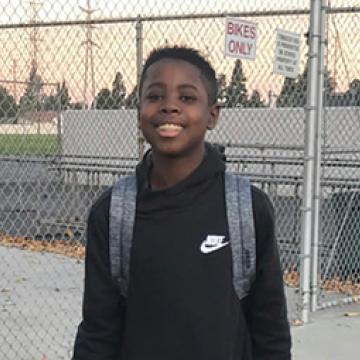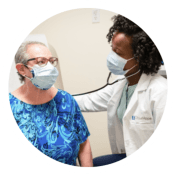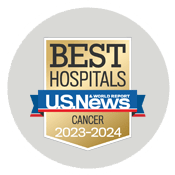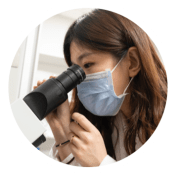
Sickle Cell Disease
Sickle cell disease is a hereditary blood disorder that occurs when a patient has abnormal hemoglobin called hemoglobin S. Hemoglobin is a protein in red blood cells needed to carry oxygen throughout the body. Although it's hereditary, not all children born to a parent who carries the sickle cell trait will have the disease.
About 100,000 people in the United States have sickle cell disease. African-American people are most at risk for sickle cell disease, as 1 out of every 365 African-American babies is born with sickle cell disease.
The only screening test for sickle cell disease is a blood test. If a parent takes a blood test, they can find out if they carry the sickle cell trait and might pass it to their children. Children can be tested for sickle cell disease while still in the womb.
Depending on the severity of a patient’s disease manifestation, treatment options range from medications like hydroxyurea and other newly licensed products to blood transfusions, red blood cell exchanges, and, in some cases, hematopoietic stem cell transplantation.
As a patient at City of Hope, you or your child will be at the center of leading-edge research that leads to the best and newest treatments. In a given year, City of Hope conducts more than 500 clinical trials, giving many of our patients access to a clinical trial that meets their specific needs.
Patient Stories


Our sickle cell disease team is an integrated group of experts who will focus on providing you optimal care from the moment of diagnosis to active treatment to recovery and survivorship.
Our treatment program offers several unique features that allow our patients to receive treatment in a more efficient and less invasive manner. Because we have our own donor apheresis center blood bank, our patients don't have to travel to another hospital for transfusions and, most times, the process can be completed in one day.

City of Hope is one of the few facilities designated a comprehensive cancer center by the National Cancer Institute.

Our developments in the areas of breakthrough cancer drugs, bone marrow transplants and CAR T cell therapy are recognized internationally.

Our leadership in research and innovation continually enhances our ability to provide novel and differentiated approaches to cancer care.
No articles found matching the selected criteria.